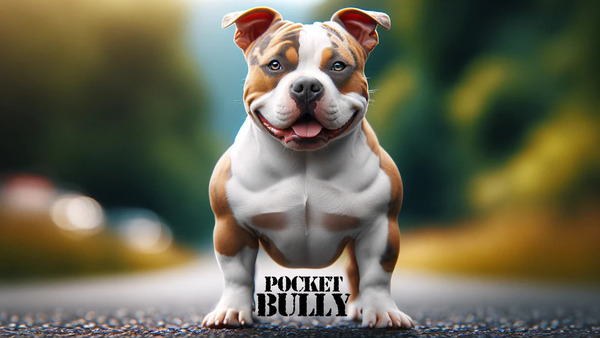If you're wondering what animal bones are safe for dogs, you're not alone. Pet owners often seek natural treats for their furry companions, and animal bones are one of the most common options. However, it's important to understand which bones are safe and beneficial for dogs and which ones could pose serious health risks. This guide will explore the types of animal bones that are safe for dogs, how to prepare them, and key tips for keeping your dog healthy while enjoying this natural treat.

Before diving into the specific types of animal bones, it's essential to understand why bones can be a good addition to a dog's diet. When given appropriately, bones can offer several benefits, such as:
Dental Health: Chewing on bones helps scrape plaque off your dog's teeth, promoting better oral hygiene.
Mental Stimulation: Dogs naturally enjoy chewing, and bones can provide a long-lasting, mentally stimulating activity.
Nutritional Benefits: Some bones contain marrow, cartilage, and soft tissues, which can be rich in nutrients like calcium, phosphorus, and healthy fats.
However, not all bones are created equal, and some types can cause harm. Let's look at the best types of bones for dogs and what you should avoid.
Raw Beef Bones
Raw beef bones are generally safe for dogs and are one of the most popular choices among pet owners. They are tough, large, and less likely to splinter than poultry or pork bones. Marrow bones and knuckle bones are especially popular because they provide hours of chewing fun and are rich in bone marrow, which dogs find irresistible.
However, be mindful that bones with a lot of marrow can be high in fat, so it's best to moderate the frequency and portion sizes, especially if your dog is prone to weight gain or pancreatitis.
Raw Lamb Bones
Lamb bones, such as leg bones or rib bones, are another good option. They are denser than pork or chicken bones, which makes them less likely to splinter. As with beef bones, always choose raw lamb bones over cooked ones, as cooking makes bones more brittle and dangerous for dogs.
Raw Bison Bones
Bison bones are another excellent, sturdy option. These bones are similar to beef bones in size and durability, making them ideal for large dogs or aggressive chewers. Bison bones are typically available at specialty pet stores or butcher shops and provide a rich source of nutrients.
Raw Turkey Necks
Turkey necks are softer bones but still provide plenty of chewing satisfaction. They are typically made of cartilage, bone, and muscle tissue, making them easier to digest. Turkey necks can help maintain dental health while providing essential nutrients like calcium and phosphorus.
Raw Duck or Rabbit Bones
Smaller bones like duck or rabbit bones can also be a good option, especially for smaller dog breeds. These bones are softer and easier to chew, but they should always be fed raw. Duck feet or wings, for example, can serve as a great crunchy treat.
While some bones can be beneficial, others can pose serious risks to your dog's health. Here's a list of bones you should avoid:
Never give your dog cooked bones, regardless of the type of animal. Cooking makes bones brittle, causing them to splinter easily. Splinters can lead to choking, internal injuries, or blockages in the digestive system, which may require emergency surgery.
While raw chicken bones may be safe for some dogs, cooked chicken bones are especially dangerous due to their small size and tendency to splinter. Even raw chicken bones should be given with caution and only under supervision, as they are softer and can still pose a choking hazard for smaller dogs.
Pork bones, whether raw or cooked, tend to splinter easily, making them a dangerous choice for dogs. Pork ribs, in particular, can break into sharp pieces, which can cause internal damage.
Fish bones are small, thin, and brittle, making them a serious hazard for dogs. Even if cooked, these bones can splinter and lodge in your dog's throat or digestive tract, causing pain and possible infection.
Store-bought bones that are smoked, baked, or otherwise processed can be hazardous. These bones have often been treated with chemicals, and their altered structure makes them more likely to break into dangerous pieces when chewed.
Even with the safest bones, there are important steps you should take to ensure your dog can enjoy them without risk.
Always keep an eye on your dog when they're chewing on a bone, especially if it's their first time with a new type. Watch for signs of aggressive chewing or attempts to swallow large chunks of the bone, which could cause choking.
Select a bone that is appropriately sized for your dog. A bone that's too small can be swallowed whole, while one that's too large may be difficult to handle. As a general rule, the bone should be bigger than your dog's muzzle to prevent them from trying to swallow it.
Although bones can provide hours of entertainment, it's important to limit your dog's chewing time. Extended chewing can wear down their teeth, especially with very hard bones like marrow bones. A good rule of thumb is to allow your dog to chew for about 10–15 minutes at a time.
Always store raw bones in the refrigerator when they're not in use. Discard any bone that has been chewed extensively or shows signs of cracking, as it could break into sharp fragments.
After giving your dog a bone for the first time, monitor their stool to ensure they're digesting the bone properly. Some dogs may experience constipation or other digestive issues after consuming bones.
When selecting animal bones that are safe for dogs, raw bones from animals like beef, lamb, turkey, and bison are some of the best options. These bones provide essential nutrients, mental stimulation, and dental health benefits when given correctly. However, always avoid cooked bones, pork bones, and processed bones, as they can splinter and cause serious health issues. As long as you're mindful of the type of bone, the size, and how you offer it, your dog can safely enjoy this natural treat.
animal tags: Dogs
We created this article in conjunction with AI technology, then made sure it was fact-checked and edited by a Animals Top editor.
you may also like

The parts of animals that sweat vary depending on the species. Here are some common areas where animals sweat:1. Humans: Humans sweat mainly on the skin surface, especially in areas such as the head, armpits, and palms.2. Dogs: Dogs sweat mainly through their mouths and soles of their feet. They als...

Vertebrates are a large group of animals that have vertebrae inside their bodies and are animals with a notochord. They are mainly divided into the following main groups: mammal Mammals are a type of warm-blooded vertebrates. Female mammals have mammary glands that can sec...

Snails are common molluscs that usually feed on plant debris, humus and algae. Here’s a detailed look at how to feed snails: 1. Choose the right food Snails can eat a variety of plant materials, such as fresh vegetable leaves (lettuce, spinach, greens, radish leaves, etc....

Kittens usually call for their mothers with "meow meow meow" or "mom~". Different cat mothers may respond in different ways, but usually respond to their children with a sound similar to "purr purr".Cats' calls vary depending on the cat's breed, gender, age, moo...

Cerambycidae is a general name for a group of insects, mainly referring to some insects in the family Cerambycidae. Longhorn beetles usually have slender bodies, slender antennae, and have certain flying abilities. The larvae of longhorned beetles mostly feed on wood or plant stems, so in agr...

Cordyceps sinensis, also known as Cordyceps sinensis, is a precious Chinese herbal medicine commonly used in traditional Chinese medicine and health products. Distinguishing the wild quality of farmed Cordyceps requires some experience and expertise. The following are some common methods and...

Table of ContentsWhat is Fin Rot, and What Are Its Causes?BacteriaUntidy Aquarium ConditionsUnhealthy DietPoor Water QualityOvercrowdingCauses of Fin RotSymptoms of Fin RotRestlessness and AgitationDiscoloration of FinsSpot FormationCloudy EyesUlcer FormationHow to Treat Fin Rot in Fish?Medications...

The Pocket American Bully puppy is a compact and muscular breed known for its affectionate nature and striking appearance. This article will explore everything you need to know about this delightful dog, from its characteristics and care needs to training and socialization.What Is a Pocket American...
Email: jsset668#gmail.com (change # to @) Please indicate your purpose of visit! Guangdong ICP No. 2022053326 XML| map| Chinese

